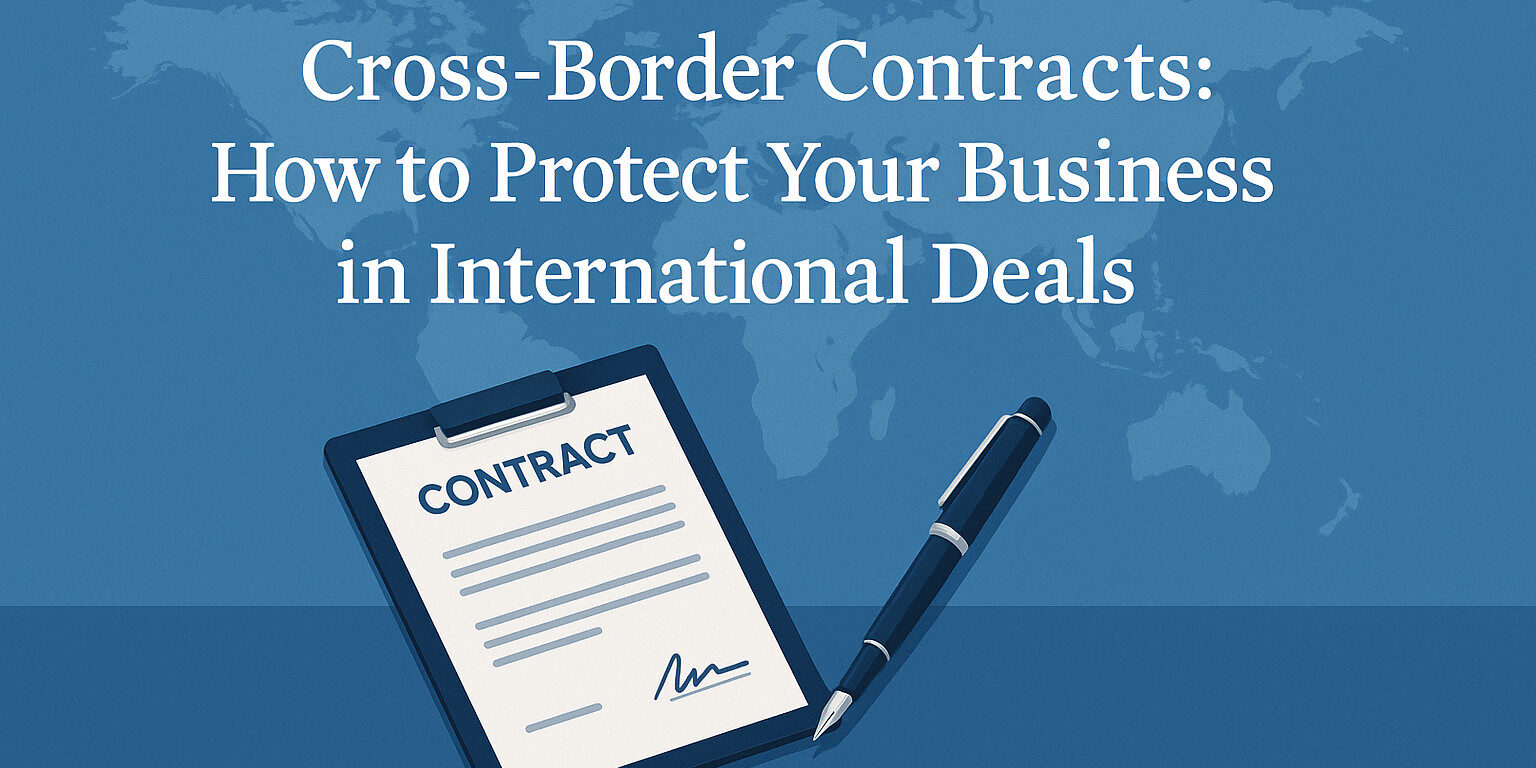Doing business internationally introduces new opportunities, but also new risks. When entering into contracts with foreign companies, language barriers, legal systems, and enforcement mechanisms can become costly pitfalls if you’re not prepared.
A well-drafted cross-border contract not only outlines the deal but also protects your interests in unfamiliar legal terrain. Here’s what you need to consider to safeguard your business in international transactions.
1. Clear and Precise Language
Avoid idioms, jargon, or culturally specific terms that may confuse or be misinterpreted. Even when both parties speak English, definitions should be crystal clear especially for key terms like “delivery,” “default,” and “force majeure.”
Use plain language and include a definitions section to standardize understanding across borders.
2. Governing Law and Jurisdiction
One of the most overlooked and most critical clauses in a cross-border contract is the governing law clause. This determines which country’s laws apply in the event of a dispute.
Closely tied to this is the jurisdiction clause, which identifies where legal proceedings will occur. Without these, you could be dragged into court halfway around the world under unfamiliar rules.
3. Dispute Resolution Method
In many international contracts, litigation is not the preferred option. Instead, consider including an arbitration clause, which can provide a neutral forum and more predictable outcomes.
Popular arbitration institutions include:
- International Chamber of Commerce (ICC)
- London Court of International Arbitration (LCIA)
- American Arbitration Association – International Centre for Dispute Resolution (ICDR)
4. Currency and Payment Terms
International deals can be subject to exchange rate volatility and transfer delays. Your contract should specify:
- Payment currency
- Accepted payment methods
- Allocation of transfer fees
- Timing and late penalties
Include language addressing currency fluctuation if payments will be delayed or made in installments.
5. Compliance With Import/Export Laws
Both parties should ensure the transaction complies with relevant import, export, and trade sanction laws in their respective countries. Your contract should require both sides to certify compliance with these laws.
This can help shield you from liability if your partner violates international trade regulations.
6. Intellectual Property Ownership
If the contract involves the use or creation of intellectual property (IP), spell out who owns what, and where. IP laws differ widely between countries—assume nothing is implied.
Also, consider registering key IP in the countries where it will be used.
7. Force Majeure Clauses
In international business, political instability, pandemics, or shipping blockades can disrupt deals. A force majeure clause outlines what happens if unforeseen events prevent one or both parties from fulfilling their obligations.
Define what qualifies as force majeure and the remedies or extensions available.
Final Thoughts
International contracts are not just longer versions of domestic ones, they require a different mindset and a deep understanding of legal risks across borders. A well-drafted agreement can be the difference between a successful partnership and a costly legal battle.
Considering an international deal? Let our team review or draft your cross-border contracts to protect your interests from day one.



